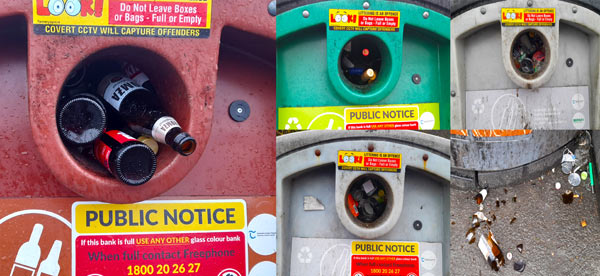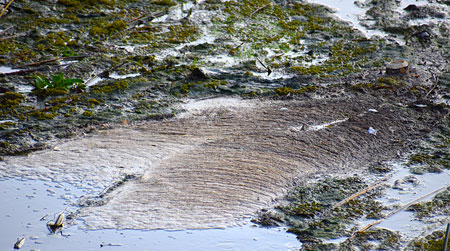Local Authorities Must Prioritise Environmental Protection To Improve Air, Water Quality & Increase Waste Recycling.
- Local Authorities play a vital role in protecting our environment and carried out over 197,000 environmental inspections in 2022.
- Local authorities need to prioritise enforcement of the roll-out and use of 3-bin systems to improve segregation of household and commercial waste.
- More local authority farm inspections and follow-up enforcement is needed to reduce the impact of agricultural activities on water quality.
- Local authorities must ensure that only approved solid fuels are available for sale, to safeguard public health from harmful air pollutants.
- Local authorities need to prioritise and resource environmental functions to deliver the national enforcement priorities.
The Environmental Protection Agency (EPA) has today published its report on the environmental enforcement performance of local authorities in 2022. The report shows that the scale of environmental enforcement work carried out by local authorities is significant. Over 520 local authority staff handled almost 70,000 complaints and carried out over 197,000 environmental inspections.
The EPA assessed the performance of each local authority against each of the 20 national enforcement priorities (NEPs). These fall into four main themes:
- Waste.
- Water Quality.
- Air and Noise.
- Governance Processes.
Ten local authorities achieved the required standard in 70 per cent or more of the assessments. These were Kildare, Meath, Fingal, Monaghan, Leitrim, Donegal, Cavan, Dublin City, Carlow and Cork County. This is up from five local authorities the previous year.
Four local authorities achieved the required standard in only 30 per cent or less of their assessments. These were Waterford, Offaly, Kilkenny and Wexford.
Commenting on the findings of the report, Dr Tom Ryan, Director of the EPA’s Office of Environmental Enforcement said: “Local authorities have a vital statutory responsibility in the protection of our local environment and are responsible for enforcing much of our environmental protection legislation. While the scale of environmental enforcement work carried out by local authorities is significant, in many areas it is not delivering the necessary environmental outcomes such as improved water and air quality and waste segregation.”
Unfortunately, many key environmental indicators are static or trending in the wrong direction:
There was no significant improvement in water quality in 2022, and more local authority farm inspections and enforcement are needed to reduce the impact of agricultural activities on water quality.
Greater enforcement is needed by local authorities to ensure failed septic tank systems are fixed.
In the waste sector, there are challenging recycling targets that need to be met.
Localised air pollution issues continue to have a negative impact on people’s health.
Dr Ryan added: “The effective enforcement of environmental quality standards at the local level is essential. Local authority leadership is critical in delivering better environmental outcomes through the prioritisation of environmental enforcement and the appropriate allocation of resources.”
Overall 2022 Assessment Result for Co. Tipperary:
According to the report Tipperary County Council officials, and municipal district councillors, led by Chief Executive Mr Joe MacGrath, sadly met the required standard of a ‘Strong or Excellent’ result, for only 45% of the National Enforcement Priorities (NEPs) in 2022, while the national average was 59%.
Local authorities are expected to meet the required standard in 100% of the NEPs, by the end of the 2022 – 2024 three-year cycle.
Additional focus is now required in the work areas where a Limited or Moderate assessment result was achieved.
Waste:
Poor waste segregation remains an ongoing problem with households and businesses still putting most of their waste in the wrong bin. Local authorities need to enforce the roll-out and use of 3-bin systems, to improve segregation and increase recycling of both household and commercial waste.
Mr David Pollard, Programme Manager of the EPA’s Office of Environmental Enforcement said: “The EPA’s recent waste characterisation study shows that many households and businesses are still failing to properly segregate their waste. Improving recycling rates through better segregation of wastes into the general, recycling and organics bins is essential if, as a nation, we are to turn waste into a valuable resource and reduce the amount of wastes we are sending to incineration and landfills. Local authorities have a vital role to play here by targeting their enforcement at the roll out and proper use of the 3-bin system.”
Water Quality:
Overall water quality is not good enough, with just over half of rivers, lakes, estuaries and coastal waters in satisfactory condition. Agriculture continues to have a significant impact on water quality, causing excess levels of nutrients (nitrogen and phosphorus) to enter our waterways.
While the number of local authority farm inspections increased during 2022, the number is still too low. More farm inspections and follow-up enforcement is needed to reduce the risk of agricultural activities negatively impacting on water quality and to drive compliance with the Good Agricultural Practice (GAP) Regulations. The National Agricultural Inspection Programme, which commenced in 2022, sets out a risk-based approach to the targeting of inspections using the EPA’s Targeting Agricultural Measures Map. A priority for this winter (2023/2024) is that local authorities monitor that there is no spreading of soiled water, slurry or fertiliser on farmlands in the closed season or under unsuitable weather or soil conditions.
Air and Noise:
Local authorities assign a much lower level of resources to air and noise enforcement than waste and water enforcement. Whilst air quality met the standards in the Cleaner Air for Europe (CAFE) Directive in 2022 there are concerning localised issues relating to fine particulate matter and nitrogen dioxide that impact negatively on people’s health. Continued focus is required by local authorities to ensure that only approved solid fuels are available for sale, to reduce air pollution from the combustion of solid fuels for home heating.
Greater local authority action is needed to prevent noise pollution impacting on people’s health and wellbeing. Most local authorities struggle to implement their own Noise Action Plans developed under the Environmental Noise Regulations. Local authorities need to allocate adequate resources to deal with noise issues. In particular, they should co-ordinate actions with other bodies responsible for transport and roads and designate quiet areas in towns and cities.
The Focus on Local Authority Environmental Enforcement – Performance Report 2022 report is available on the EPA website to download HERE. (Scroll to page 28 of 32 to view Co. Tipperary report.)



Leave a Reply